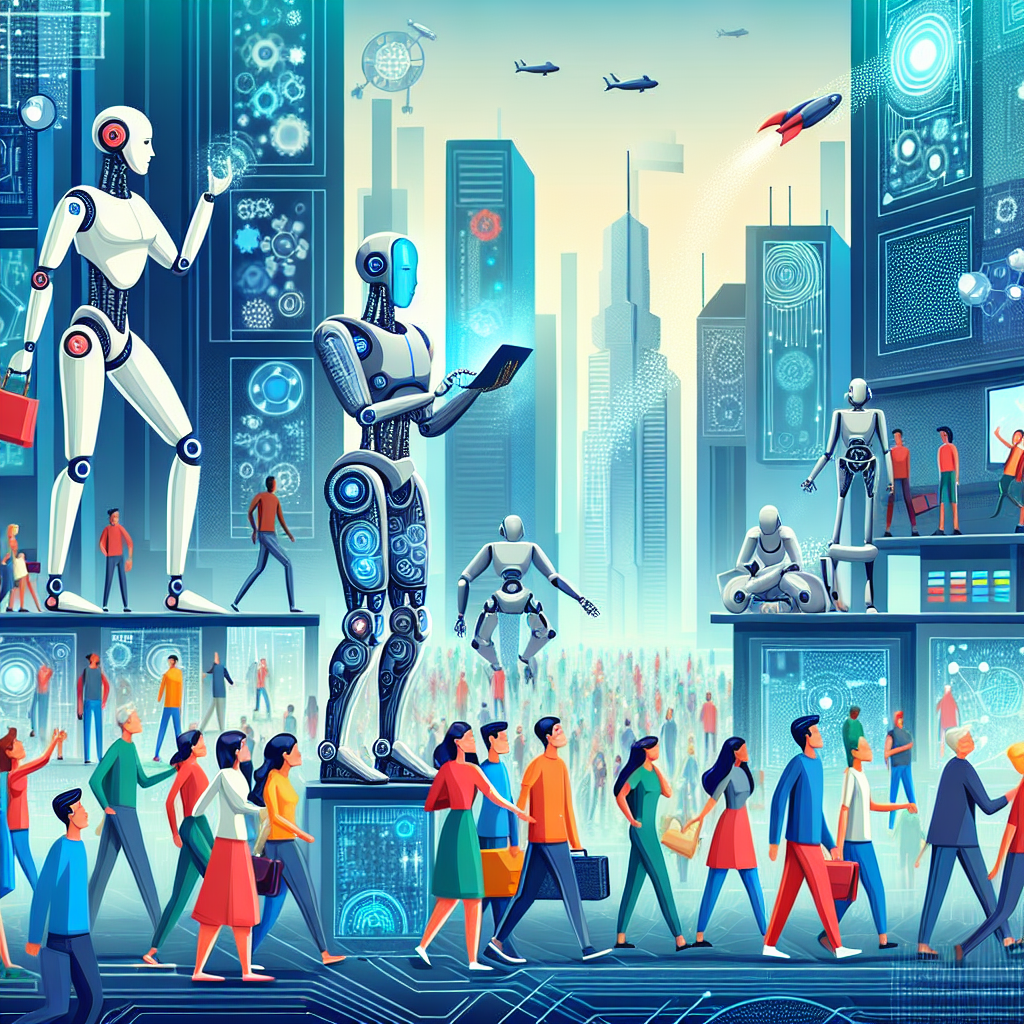As technology continues to advance at an unprecedented rate, one of the most talked-about topics is the development of Artificial General Intelligence (AGI) and its potential impact on the future of work. AGI refers to a type of artificial intelligence that can perform any intellectual task that a human can do. Many experts predict that AGI will revolutionize industries and the way we work, but there are also concerns about its impact on jobs and the economy.
In this article, we will explore the potential implications of AGI on the future of work and discuss how it may impact jobs across various industries. We will also address some frequently asked questions about AGI and its potential effects on employment.
The Rise of Artificial General Intelligence
Artificial General Intelligence is the holy grail of AI research, as it promises to create machines that can think, learn, and adapt like humans. While current AI systems are specialized for specific tasks, such as image recognition or natural language processing, AGI would have the ability to perform a wide range of cognitive tasks with human-like capabilities.
The development of AGI has the potential to bring about significant changes in the way we work and live. It could lead to more efficient and productive workplaces, as machines take over repetitive and mundane tasks, freeing up human workers to focus on more creative and strategic activities. AGI could also revolutionize industries such as healthcare, transportation, and finance, by providing new insights and solutions that were previously unimaginable.
However, the rise of AGI also raises concerns about its impact on jobs and the economy. Many fear that widespread adoption of AGI could lead to mass unemployment, as machines replace human workers in various industries. There are also concerns about the potential for AGI to exacerbate income inequality, as the benefits of automation may not be evenly distributed among workers.
How Will AGI Impact Jobs?
The impact of AGI on jobs is a topic of much debate among experts and policymakers. While some believe that AGI will create new job opportunities and spur economic growth, others are more pessimistic about its potential effects on employment.
One of the main arguments in favor of AGI is that it will create new job opportunities in industries that have yet to be disrupted by automation. For example, the development of AGI could lead to the creation of new roles in fields such as AI ethics, data security, and machine learning engineering. This could result in a shift towards more knowledge-based and creative work, as machines take over routine tasks.
On the other hand, there are concerns about the potential for AGI to displace human workers in industries that are already heavily automated. For example, jobs in manufacturing, transportation, and customer service could be at risk as machines become more capable of performing these tasks. This could lead to widespread job loss and economic disruption, particularly for workers who lack the skills or education needed to adapt to a changing labor market.
To mitigate the potential negative effects of AGI on jobs, experts suggest that policymakers should invest in education and training programs that equip workers with the skills needed to thrive in a digital economy. This could involve promoting lifelong learning initiatives, reskilling programs, and vocational training opportunities that prepare workers for the jobs of the future. By investing in human capital, governments can ensure that workers are able to adapt to the changing demands of the labor market and remain competitive in an era of automation.
Frequently Asked Questions about AGI and the Future of Work
Q: Will AGI replace all human workers?
A: While AGI has the potential to automate many tasks currently performed by humans, it is unlikely to replace all human workers. There will always be a need for human creativity, empathy, and critical thinking skills that machines cannot replicate.
Q: What industries will be most impacted by AGI?
A: Industries that rely heavily on routine and repetitive tasks, such as manufacturing, transportation, and customer service, are likely to be most impacted by AGI. However, other industries such as healthcare, finance, and education could also see significant changes as a result of AGI.
Q: How can workers prepare for the rise of AGI?
A: Workers can prepare for the rise of AGI by investing in their skills and education. This could involve pursuing higher education, taking online courses in emerging technologies, or participating in vocational training programs. By staying informed about the latest trends in the labor market, workers can position themselves for success in an era of automation.
Q: What role will policymakers play in shaping the future of work in the age of AGI?
A: Policymakers will play a crucial role in shaping the future of work in the age of AGI. They will need to enact policies that promote workforce development, encourage innovation, and protect workers from the negative effects of automation. This could involve implementing tax incentives for companies that invest in training programs, creating regulations that ensure the ethical use of AI, and providing social safety nets for workers displaced by automation.
In conclusion, the rise of Artificial General Intelligence has the potential to revolutionize the way we work and live. While AGI promises to bring about new opportunities and efficiencies in the workplace, there are also concerns about its impact on jobs and the economy. By investing in education and training programs, policymakers can help workers adapt to the changing demands of the labor market and ensure that the benefits of automation are shared equitably. AGI may be the future of work, but it is up to us to shape that future in a way that benefits all members of society.

